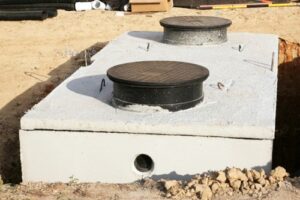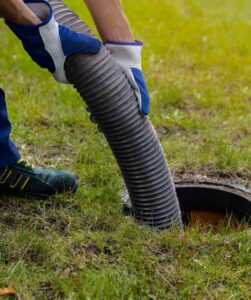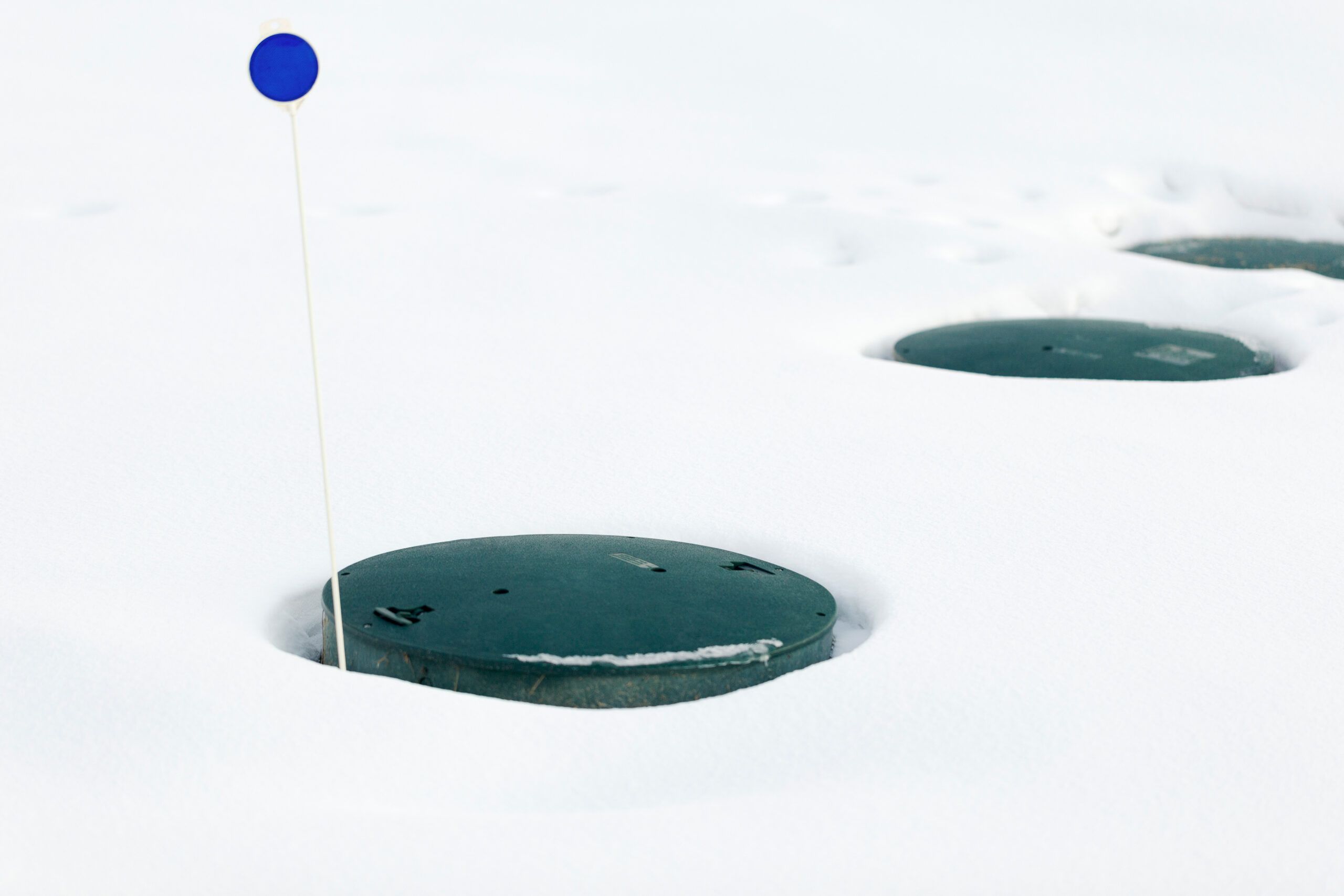As temperatures drop and holiday gatherings bring more activity to your home, your septic system faces added strain. Freezing pipes, overloaded tanks, and system malfunctions can quickly turn holiday joy into a costly headache. These steps will help you winterize your septic system, keeping it functional and efficient during the colder months.
1. Insulate the System
Freezing temperatures are a major risk for septic systems, especially in winter climates.
- Add Mulch or Straw: Apply a 6–12 inch layer of mulch, straw, or leaves over the septic tank and drain field to provide insulation. This protects the system from frost and freezing.
- Avoid Heavy Traffic Over the System: Compacting the soil reduces insulation and risks freezing. Keep vehicles, equipment, and heavy decorations away from the septic tank and drain field.
- Let Grass Grow: If you mow your lawn short in summer, allow the grass to grow a bit longer in fall. It acts as a natural insulator.

2. Check for Leaks and Cracks
Any leaks in your plumbing or septic system can allow cold air to infiltrate, increasing the risk of freezing and overloading the system.
- Inspect Plumbing and Fixtures: Look for dripping faucets, running toilets, or slow leaks that add unnecessary water to the system. Fix any issues immediately.
- Examine Septic Lids and Covers: Ensure all septic tank lids, risers, and covers are in good condition and sealed tightly to prevent cold air infiltration.
- Professional Inspection: If unsure, schedule an inspection to identify any cracks, leaks, or wear in the system before winter.

3. Limit Water Usage
During the holidays, hosting guests means increased water use from showers, laundry, dishwashing, and toilets. Overloading the septic tank can disrupt its function.
- Stagger Water-Heavy Activities: Spread out showers, dishwashing, and laundry throughout the day to avoid overwhelming the system at once.
- Educate Guests: Remind guests to be mindful of what goes down the drains—no wipes, grease, or non-septic-safe items.
- Install Water-Saving Fixtures: If possible, use low-flow toilets and water-efficient showerheads to reduce water volume.
4. Schedule Regular Maintenance
A well-maintained septic system is less likely to fail during winter when repairs are harder to carry out.
- Pump the Tank: If it’s been over 3 years since your last pump-out, schedule one before winter to prevent backups.
- Inspect Before the Holidays: A professional inspection can catch minor issues before they become major winter problems.
- Clean and Test the Drain Field: Ensure the drain field is clear of debris, and water is dispersing properly to avoid saturation.

5. Use the System Wisely During Freezing Weather
Winter conditions require some extra care to avoid septic mishaps.
- Keep the System Active: Regular use generates heat and helps prevent freezing. Avoid leaving the system unused for long periods.
- Avoid Pouring Hot Water Down Drains: While it may seem like a good idea, pouring large amounts of boiling water can disrupt the natural bacteria in the tank.
- Be Mindful of Snow and Ice: Clear snow off septic tank lids carefully to avoid damage but leave a light layer for insulation.

Why Winterizing Matters
A frozen or overloaded septic system can lead to slow drains, sewage backups, and costly emergency repairs—none of which you want during the holidays. Taking these simple steps now ensures a stress-free season and keeps your system working reliably all winter long.
By following this guide, homeowners can enjoy the holidays without worrying about septic surprises. A little preparation now goes a long way toward avoiding major headaches later.


